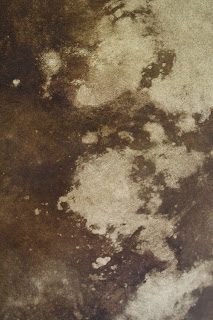“The cocoa bean is a phenomenon, for nowhere else has nature concentrated such a wealth of valuable nourishment in so small a space”.
Alexander von Humboldt
If we – as Swiss – travel abroad we are commonly associated with 4 things: watches, banks, cheese and chocolate. These things that are emblematically important components of our identity, are based on very diverse constituents. The idea of the Italians and the Fuggers to organise money trafficking internationally was extended by us by a few tricks and the guaranty of state stability; immigrated refugees from France brought important know-how for the fine mechanics of the watch industry. The cheese is a genuine and autochthonous Swiss evolution, based on a local resource: milk.
Adán Vallecillo’s (*1977, Danlí, Honduras) first solo exhibition with Christinger De Mayo broaches the issue of the history of chocolate and its hidden connections between Mesoamerican history, colonization and lucky Switzerland. His works and interventions are never didactic though, or openly political, they rather convince through a sensual experience of a part of the world, which seems far away, of which we only know little but with which we are aligned since hundreds of years.Switzerland likes to think that we have no colonial past, seeing that we really never owned any colonies overseas. Through our mercantile interests though, we were deeply mired in the mechanisms that define a
colonial circulation of goods. The raw material of our chocolate
comes from Mesoamerica where the fruits of the cacao tree, their pulp and their kernel were prepared as a cultic drink by the Maya or even earlier cultures. Furthermore they played a vital role
as a currency in the economic system and in politics.The products of Honduras, the home country of Adán
Vallecillo, have not brought luck to the country as is visible in the eventful history of the 20th century. Bananas,
cacao, coffee and tobacco were and still are planted under arduous conditions. For the farmers of this violence plagued country, the earnings are not enough for a humane existence. Only a rethinking of the consumers in the processing countries like Switzerland might lead to a change in their living conditions. If we are willing to invest more, a sustainable production might be possible.In “Chocobanana Games” the fault lines and clandestine connections between Switzerland and Honduras are
made visible: the architecture of the Maya’s is reflected in the topography of a chocolate
bar.
Damian Christinger
 |
| Todas las imágenes cortesía de la galería Christinger de Mayo, Zurich, Suiza. |
 |
| All ThatYou Don't Want To Hear About Chocolate |
 |
| Cocoachiote |
















No hay comentarios:
Publicar un comentario